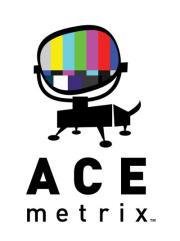
Ace Metrix first defines the reason why advertisers use humour. Simple: Connect with viewers and make them either start buying, or keep buying your product. Despite the fact that this is so simple, it's hard to do a large-scaly study to the effectiveness of humour. Ace Metrix bypassed the intimidatingly huge scale by just tackling it. They scored all television advertisements and got a clear picture of the effectiveness.
Their study resulted in the following key findings:
- About one-in-five advertisements on television is funny
- Certain industries and brands consistently produced humorous ads
- Humorous ads tend to be light on informative content
- Humorous ads tend to get higher levels of viewer attention, increased likeability and improved willingness to watch the ad again
- While Super Bowl ads measured three times as funny as other ads, they were not more effective than other ads in that period.
So that's mostly positive, right? I'm surprised myself on the Super Bowl figure, because they're not only funnier, but on average seen by way more people as well. But what makes an ad funny? Of course I wouldn't ask this question if Ace Metrix didn't give the answer.
Ads are funny if the humour is used as a supplement, not a replacement. It should be a little extra next to the message of the ad. Besides that, humour should be relatable. The funniest ad in this study is 'Baby Wets the Room' by Huggies. I'd say they're pretty right, this is hilarious:
Bottom line is that this is relatable. It has a broad relevance to many people. On the other side of the spectrum, for example: An ad on a space ship might be just as funny, but it isn't as relatable because not more than sixhundred people have been to space, of which almost half have died already. To them, it could've been the funniest commercial ever.
Besides relatable, it helps the ad if it's also informative. People feel like they've 'learned' something in a way, instead of having just laughed. Humour can convey this message better. Humour also drives attention, likeability and the likelihood of repeat viewing an ad. Which is nice, but those three don't drive overall effectiveness. Because for an ad to be effective, it has to generate revenue.
"Funny ads drive other great advertising attributes such as
attention and likeability. However, low information and
relevance on many funny ads results in creating lower desire
for the advertised products than non-funny ads."
So if you want to be liked, make a funny ad, but if you want to sell product, make an informative ad.
You have to register to download it, but here is the source.
No comments:
Post a Comment